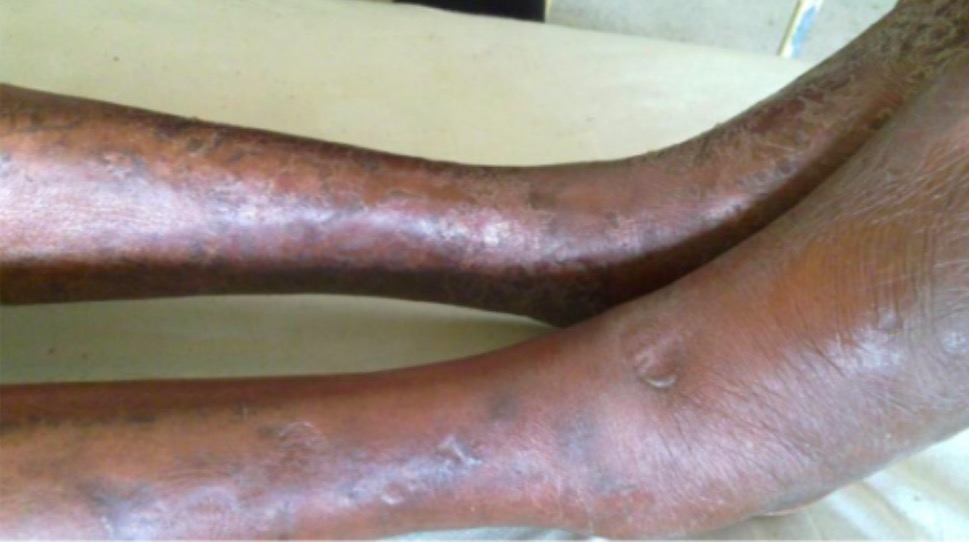Playlist
Show Playlist
Hide Playlist
Therapeutic Clot Lysis or Stabilization
-
Slides Hemostasis Therapies.pdf
-
Download Lecture Overview
00:01 So, those are going to be, largely anticoagulant, the things that we've been talking about. 00:08 How can we also, affect the next step, "Breaking down clot?" So, therapeutic clot lysis, once a clot has formed, which is the typical situation in a myocardial infarct, we want to break that up, as soon as possible. 00:23 How do we do that? So, remember the pathways that we talked about, where we have, activation of the coagulation cascade, driving activation of endothelial cells, that leads to production of tissue plasminogen activator, that will then activate plasminogen, those blue bars, that are in our clot, they get turned into plasmin, which will break down the fibrin molecules, we’ll cleave those. 00:51 So, if we add more tPA, we can more effectively drive the activation of plasminogen into plasmin and break down clots more effectively. 01:00 So, tPA is our classic clot buster, “Tissue Plasminogen Activator.” And if the patient arrives in the emergency room with their heart attack before six hours have rolled by, then, we give tPA to break down the clot. 01:14 Recall that after about six hours, it's not going to be as effective because factor 13, has cross-linked all that fibrin. 01:21 Okay, so that's breaking up a clot. 01:24 What, if we have too much bleeding say because we have too much free plasmin in excess of our ability of Alpha2-antiplasmin to sop it up. 01:36 Well, we can give inhibitors of fibrinolysis, so aprotinin will block the activity of plasmin and will in some cases, be able to prevent excess bleeding. 01:48 So, we've talked in broad strokes about how hemostasis works, we've talked about measuring it, we've talked about pro-thrombotic and anti-thrombotic sorts of regulators and we've talked about specific therapies and with that, we are now to our final kind of summary. 02:07 So, keep in mind that hemostasis is a delicate balancing act, between clot formation, that involves a platelet plug and fibrin clot. 02:18 Versus inhibitors fibrinolysis and natural anticoagulants. 02:22 And again, the point is, we want to cause a cut on your finger to quit bleeding before you exsanguinate. 02:30 At the same time, we don't want your entire arm to thrombose because, the coagulation cascade has become too exuberant. 02:37 So, we have clot formation, clot inhibition that's delicately balanced. 02:42 If you have too much clot formation, you have thrombosis and there are a variety of things indicated there, that will drive a thrombotic state. 02:51 And we have a number of things that will tend towards bleeding, platelet or coagulation factor deficiencies. 02:57 So, we have to carefully balance these and this is perhaps one of the more delicate and more complex balancing acts in the entire human body. 03:06 But, it's a really great interesting fascinating field and I hope that you've enjoyed where we've been over the last few sessions. 03:15 With that we'll close.
About the Lecture
The lecture Therapeutic Clot Lysis or Stabilization by Richard Mitchell, MD, PhD is from the course Hemostasis.
Included Quiz Questions
When should tPA be administered for maximum efficacy?
- Within 6 hours of clot formation
- Within 24 hours of clot formation
- Within 12 hours of clot formation
- Within 10 hours of clot formation
- Within 72 hours of clot formation
What is the mechanism of action of aprotinin?
- It is a fibrinolysis inhibitor.
- It breaks down a thrombus.
- It is a plasminogen activator inhibitor.
- It blocks the cyclooxygenase pathway.
- It prevents the regeneration of active vitamin K.
Customer reviews
5,0 of 5 stars
| 5 Stars |
|
5 |
| 4 Stars |
|
0 |
| 3 Stars |
|
0 |
| 2 Stars |
|
0 |
| 1 Star |
|
0 |




